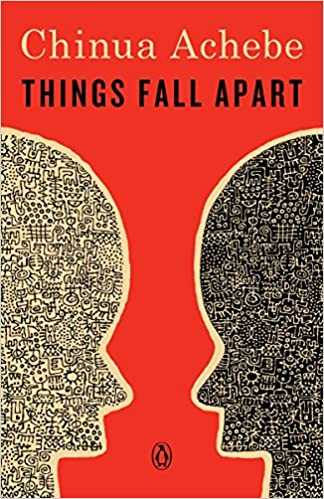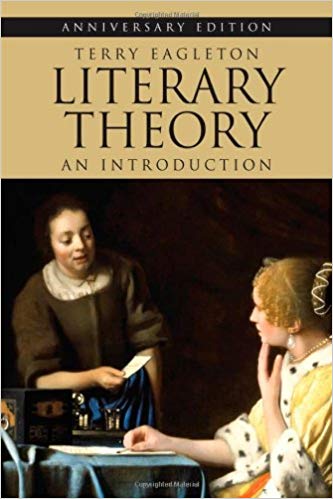Eng 22072-003
Postcolonial/World Literature Tradition
Introduction
The most important question for this course is its very designation: The great books. While reading and discussing some representative books from the global periphery, we will also discuss the very nature of textual evaluation itself. What is a great text? Who decides its greatness? Is greatness something intrinsic to the text or is it great because of the authorial mastery, or, for that matter, is it great becasue of what it generates as its effects?
In reading these texts we will also question our practices of reading and our reasons for privileging one method of reading over the other. Mainly, the question that we will pursue is the possibility of learning our own place and responsiblity in this world of unequal distribution where a large portion of the globe lives and works to serve the interests of a privileged minority.
Required Texts
Ania Loomba. Colonialism/Postcolonialism. Second Edition. Routledge.
Edward Said. Orientalism.
Qurratulain Hyder. River of Fire.
Ngugi wa Theong’O. Devil on the Cross.
Naguib Mahfouz. Children of the Alley.
George Lamming. In the Castle of My Skin.
Garcia Marquez. One Hundred Years of Solitude.
Handouts
- Terry Eagleton. “What is Literature?”
- James Averill. “The Rhetoric of Emotion, with a Note on What Makes Great Literature Great.”
- “Qurratulain Hyder’s River of Fire: The Novel and the Politics of Writing Beyond the Nation-State.”
- Ngugi–From the Garden of Languages, the Nectar of Art: An Interview with Ngũgĩ wa Thiong’o.
- Ngugi–Standing our Ground.
- Mahfouz–Time and Memory.
- Lamming–Minting the Face of Empire: Coinage and the Shadow King in George Lamming’s In The Castle of My Skin.
Presentation 200 Points
Mid-Term 200 Points
Online Journal responses 200 Points.
Participation 100 Points
Term Paper 300 Points
Total 1000 Points
YOU MUST FINISH ALL MAJOR ASSIGNMENTS TO PASS THE COURSE
Response Journals:
Every week you will post your response to the readings on the discussion thread provided under Discussion Forum on the course website. To be able to do this you must create a user name on the website; you will share this user name with me for me to be able to keep a record of your postings. Your response must at least be 500 words.
During the first week you will choose a particular novel for your presentation. Your presentation will then fall in the week in which your chosen novel is scheduled for class discussion. I expect a 30-40 minutes FORMAL PRESENTATION using the insights provided by the secondary readings. You must also turn in a 4-6 page written brief of your presentation with a detailed list of your scholarly sources. Following are some, but not all, questions you may consider:
- What does the text say about gender, race, ethnicity, class, nation, or power and what are your views about it?
- Did you agree or disagree with the text’s politics? why?
- What is the text critiquing?
- How can we relate this text to contemporary realities?
- Does this text raise the question of justice? If so, how and for whom?
- Does the text provide a politics for a better future?
Mid-Term Exam (Questions)
The Mid-term will be an in-class essay exam administered in the eighth week. Rules for Essay Exam–Courtesy Jenny-Caneen Raja.
As this is a course based on a discussion format, your thoughtful participation is essential to the success of the class. I encourage collegiate, open, and thought-provoking class discussions. Remember, we are all here to learn, so let us share our ideas and knowledge to make this class into a dynamic learning experience.
The final term paper will be due on the last day of class. The paper (10-12 pages) should have a clearly defined thesis and a coherent argument. I would encourage you to choose your topic early and do extensive research. I will be available to assist during all stages of your research and composition process.
You are expected to attend the class regularly. You will be in the danger of failing the course if you miss more than FOUR class sessions.
(Excerpt from the University’s Administrative policy and procedures regarding student cheating and plagiarism. Excerpted from University Policy Register #3342-3-07)
ADA:
University Policy 3342-3-01.3 requires that students with disabilities be provided reasonable accommodations to ensure their equal access to course content. If you have a documented disability and require accommodations, please contact the instructor at the beginning of the semester to make arrangements for necessary classroom adjustments. Please note, you must first verify your eligibility for these through Student Accessibility Services (contact 330-672-3391 or visit www.kent.edu/sas for more information on registration procedures).
Grading Scale:
A 960-1000
A- 900-959
B+ 860-899
B 830-859
B- 800-829
C+ 760-799
C 739-759
C- 700-729
D+ 660-699
D 630-659
D- 600-629
F Less than 600 Points
Week 2
Select Presentation Topics.
Discussion: HO 1&2 and Loomba.
Reading:
Loomba–Rest of the Book
Week 3
Discussion: Loomba
Reading:
Said
Week 4 & 5
Discussion: Said
Video: On Orientalism.
Reading:
Hyder
HO 3
Week 6
Discussion: Hyder and HO 1
Reading:
Hyder
Week 7
Discussion: Hyder
Reading:
Ngugi
HO 4 & 5
Week 8
Mid Term
Discussion: Ngugi and HO 4&5.
Reading:
Mahfouz
HO 6
Week 9 & 10
Discussion: Mahfouz
Reading:
Lamming, HO 7
Week 12
Discussion: marquez
Week 13 & 14


